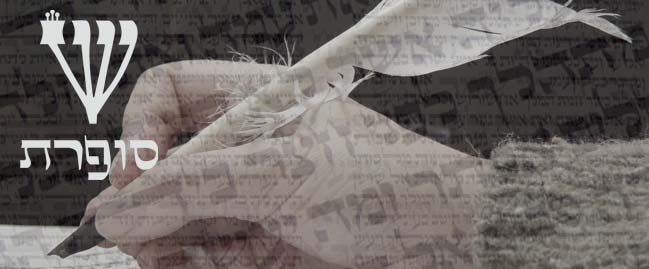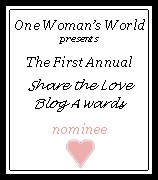HOSHA NA! SAVE US FROM EXCLUSION
בס"ד
17 Tishrei
This is where I listed the ten middot (character traits) which I know I must work to change about myself. The ten most serious, anyway. The ten which I see interfere with my path, have the most negative influence on it. As you'll see, number two on the list is my committment to decrease fear. I failed on the first day of Sukkot, but will keep trying.
So, what happened? The time came in our synagogue service to do the hakafot, when we take our lulavim & etrogim (3 species of Israeli greenery plus a citron) & parade around the bimah. A teaching on this is: Traditionally, these species are said to replicate G@d's 4-letter Holy Name.
Just as that was beginning, my dear husband came over to the women's side of the mechitzah (boundary between the men's & women's sections) & handed me the shul's extra set of lulav & etrog. We're so poor this year, we couldn't afford our own, but thank G@d our synagogue provides spare ones.
It was really thoughtful of Joel to offer the species to me, so I could join in the circling. At first I was confused, because he is supposed to participate as well, according to some he has a greater obligation to do so. But he knew I had not had a chance yet to bentsch (pray) lulav, so I accepted them & thanked him. I stood there at the edge of the plants we use as the gender division, but saw that not only did no other women have the species, but that the men were circling on their own side, where I'm not allowed to enter. I didn't know what to do.
I was surprised, because we used to all circle together, men & women around the whole bimah, on both sides of the mechitzah. But with an imploding shul & a new rabbi, our older minhagim (traditions) are silently & suddenly disappearing. The women & children stood behind the barrier, quietly looking on. I awkwardly stood there with my lulav & etrog, watching the men chant & march. Feeling very conspicuous that I was ready to join in the mitzvah, but noting there was no place for me. I was too afraid of offending some of the men to walk over there & join the line. Taking my place. Even though we weren't actually davening (praying), my presence, too close, may inspire a reaction I would not want to deal with.
So I handed the species back to my husband so that he could join the men, & burst into tears in the rabbi's office.
Joel brought the lulav & etrog back to me at the end of services, so that I could at least do the individual blessing. & our rabbi is now checking with his rav to find out how we can be more inclusive, Barukh HaShem.
But I still wish I'd had her courage.














9 Comments:
I think you do have that courage, Aviel. But it is also possible that you have a sense of the right time, and maybe this wasn't the time.
For me it was only a little about courage and much more about an open-hearted community. (Actually, I still don't know how open the community was. Just the rabbi. We'll see over time.)
P.S. I already have a reputation in this shul for being the only woman who shows up in evenings like Kabbalat Shabbat and sometimes to mincha on a chag. Haven't had the courage or inclination to crash the men's Daf Yomi on Shabbos yet although I've been invited.
I almost cried at that, because it recalled a feeling that's a little strange to recount, considering I was only reading and not actually experiencing the event: In a newspaper article from a paper in DC, I read about how this one woman decided, one day, to walk into the main prayer hall in her mosque, where all the men are, and pray there. If I have my facts correctly, she stayed in the back so that she wasn't shoulder-to-shoulder with any of them, and she stood for prayer. But when the men saw her, they asked her to leave and then got very angry. I remember that the language they were quoted as using was simultaneously very repsectful and very dismissive: "Please, sister, this is the men's section," and so forth. But she stayed and prayed. Her father and husband came in and defended her right to stay there. And since no one was going to physically remove her (thank God!), she continued every time to go, and every time more female members of her family went. I dont know what became of that mosque, or that family, or that woman after that - but I remember as I read it, that I felt several things that I felt again reading this:
a) fear - empathetic fear that recalls my own experience in segregated situations where I either found myself crossing boundaries without realizing and then finding myself suddenly on the other, the male, side, or crossing boundaries deliberately because I thought it was important - and as a result feeling like I was driving against traffic in the wrong lane on a highway;
b) frustrated anger - that crossing boundaries should feel so dangerous, that one should feel so vulnerable in the sight of men AND women when one is wanting to feel ecsatic and loving and joyful in the sight of God;
c)sheer awe - that you do any of the Work that you do, every day, and that you are, ma sha'Allah (as God wills) so strong; that God made women so strong;
d) more fear and more awe - could I ever do that? would I have the guts? would I incur physical harm? would my relationship with God come into dire jeopardy because of my boldness in making a move so seemingly discordant with the space I'm in?
That you took them from your husband reflects your large soul; that you hesitated in the face of the closed ranks of men (which is only my impression and I may be overstating it, or plum wrong) shows your good sense and your instinct for survival and, most importantly, the fundamentally conciliatory drive behind your path-breaking work; that you cried means that you see truth for truth and know when a reality needs mourning because it's unjust and wrong.
You know all these things of course. But, from across that other divide, where Muslim and non-Muslim alike tell us we're doing it all wrong because we're not participating enough in public and participating too much in private, I just wanted to publically holler that bravery is a life and not a portfolio of impressive moments. And you live bravely.
And anyway, that's why the holy days come every year - so that we're always perfecting.
I'm so sorry this happened to you, Aviel. You are fighting difficult battles every day of your life, and I know how exhausting that is. I look forward to the day when you can participate fully in your branch of our tradition without this kind of struggle!
and cherilyn, I wildly disagree with your supposition that most people would agree with you that this is "babyish" behavior. Wildly wildly. I think most people would see someone with profound religious longings who's being made to feel unwelcome by a destructive and patriarchal system of exclusion -- if that's not a valid reason for tears, I don't know what is.
I also cried on Yom Tov (Simchat Torah) this year...post forthcoming. You are not a big baby, you are struggling to reconcile the sincere desires of your heart with the sincere intentions of the community to do the right thing in their eyes.
If I saw someone breaking down in tears during davening, I would assume that they were profoundly upset about something and in need of support. Dismissing someone as a big baby is not especially constructive.
Your post came to mind on Hoshana Rabba - I said to the (two) other women present, "Do you think we're invited up there?" and they sort of giggled a bit and looked sheepish, and I said "Let's assume we're invited, come on!" and went on up, but they didn't join me. I wondered what they were feeling.
Well, I didn't even show up long enough to be excluded these High Holy Days, so don't feel too bad.
But more seriously, I think that you are perfectly entitled to your emotional reactions. I find it very odd how so many people hold perfect composure through the confessions, through funerals, through all sorts of things that turn me into a blubbering mess. I wonder, "Are they better actors? Do they just not feel things as I do? Do they somehow do all their processing in private, like a bowel movement, and no trace is left in public?" It's very odd.
However, I would be surprised if anything changed anywhere because someone argued down their rabbi, in public, during a service in which he is supposed to be participating. It's brave, but probably ineffective.
You did speak up, the rabbi is looking into it, change is possible. So good on you.
Just remembered, as I read this, Davita's Harp, by Chaim Potok. Fiction so often tells us the truth so much better than anything else, and it is obvious that the struggles Davita had are mirrored very much in real life--yours, and many other women's. Cherylin21042 to the contrary, and with a tip of the hat to evenewra, I saw courage in this, and someone who sensed the kairos (God's time)in this.
בס"ד
Thank all of you so very much for your comments. I feel deep appreciation for everything you shared, & your words & sentiments bring me great hope. I am often surprised & always fascinated by how humans react to other humans who are taking that most intimate risk of making themselves vulnerable.
Todah rabah for forming this community.
Post a Comment
<< Home